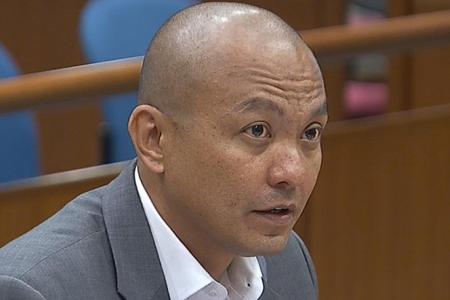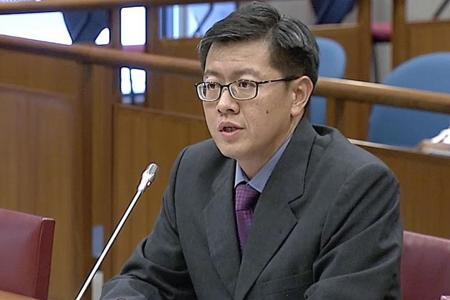Two academics recommend multi-prong approach to fight online fake news
Academics say multi-pronged approach - including education, research and new laws - should be used to fight online falsehoods
Two academics said yesterday that a multi-pronged approach should be adopted to tackle the problem of deliberate online falsehoods.
They added that the measures - including stepping up media literacy, undertaking local research and updating laws - should not stifle the public exchange of ideas and opinions required in democracies.
The two academics, S. Rajaratnam School of International Studies senior fellow Norman Vasu and Singapore Management University law don Eugene Tan, were speaking on the seventh day of public hearings of the Select Committee on deliberate online falsehoods.
So far, 59 representatives have spoken at the hearings since March 14. The last one will take place today.
In his written submission, Dr Vasu outlined six categories of online falsehoods based on the degree of threat they pose. Topping the list is disinformation aimed at undermining society, while parody is at the bottom.
Dr Vasu said responses should target only falsehoods created to undermine the state and untruths spread for financial gain as such malicious spreading of disinformation can undermine elections and sow discord.
In other cases, measures are already in place to correct wrong information, he added.
Both also said legislation can be considered, but highlighted its limitations.
Laws may fail to keep pace with technological development, Dr Vasu pointed out. Prof Tan said they could stifle the "bottom-up energy and mobilisation that is needed to fight deliberate falsehoods", and should be used only in situations of "clear and present danger".
Dr Vasu stressed the question of deciding what should be defined as true or false should not be left in the hands of a select few. Nor should governments try to do the same, said Prof Tan.
Any response to online falsehoods should target only those that are deliberately spread to undermine society, added Dr Vasu.
He also said the creators of disinformation should be the ones taken to task, and not people who pass them on as they may do so unwittingly.
When committee member Chia Yong Yong asked if this meant a person transmitting racially inflammatory information need not be held accountable, Dr Vasu disagreed.
He said it was important to consider the intention.
Get The New Paper on your phone with the free TNP app. Download from the Apple App Store or Google Play Store now




